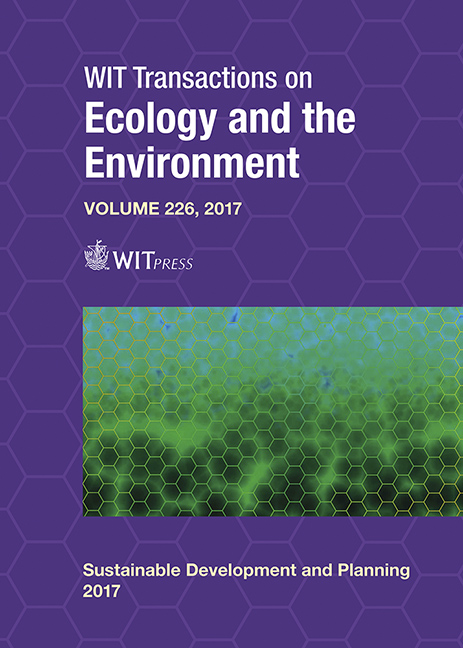PUBLIC PERCEPTIONS OF URBAN SUSTAINABLE CHALLENGES IN DEVELOPING COUNTRIES
Price
Free (open access)
Transaction
Volume
226
Pages
10
Page Range
131 - 140
Published
2017
Size
408 kb
Paper DOI
10.2495/SDP170121
Copyright
WIT Press
Author(s)
MARWAH MAHDI MOHSIN, THOMAS BEACH, ALAN KWAN
Abstract
Sustainable urban development is facing major challenges in developing countries, due to rapid urbanisation, lack of environmental strategies, energy consumption, transport congestion, and insufficient infrastructure. The degradation of public services and utilities has also been significant, particularly in politically unstable countries such as Iraq, whose cities have suffered from destruction, leading to severe damage to infrastructure and causing economic deterioration. In many of these countries, rebuilding projects are currently in progress and being planned, but the public are not being involved in the decision-making process. This study investigates public perceptions of sustainable urban challenges and their priorities for the Iraqi capital city of Baghdad; it also investigates social awareness of urban sustainability within the local Iraqi context. A national questionnaire (n=750) was conducted and participants’ views were gathered on a 5-point Likert-type scale. The findings revealed that 81% of the participants considered ‘providing green areas and parks’ as the most important goal in urban development. This was followed by ‘waste recycling and separation’ (74%) and ‘mitigation of traffic congestion’ (70.5%). The ‘minimisation of energy consumption’ was poorly rated, as only 37.7% of the respondents voted this as the least important item. The results reflect the key important factors related to the services and utilities, coinciding with an actual need to raise the public services, in order to provide the required indicators with a level of importance focuses on the local context. Therefore, these urban challenge indicators can play a vital role to provide effective public’s indicators for decision-makers, in order to improve the existing applications and the future urban projects to achieve quality of life.
Keywords
urban sustainable development, urban development challenges, public perceptions





